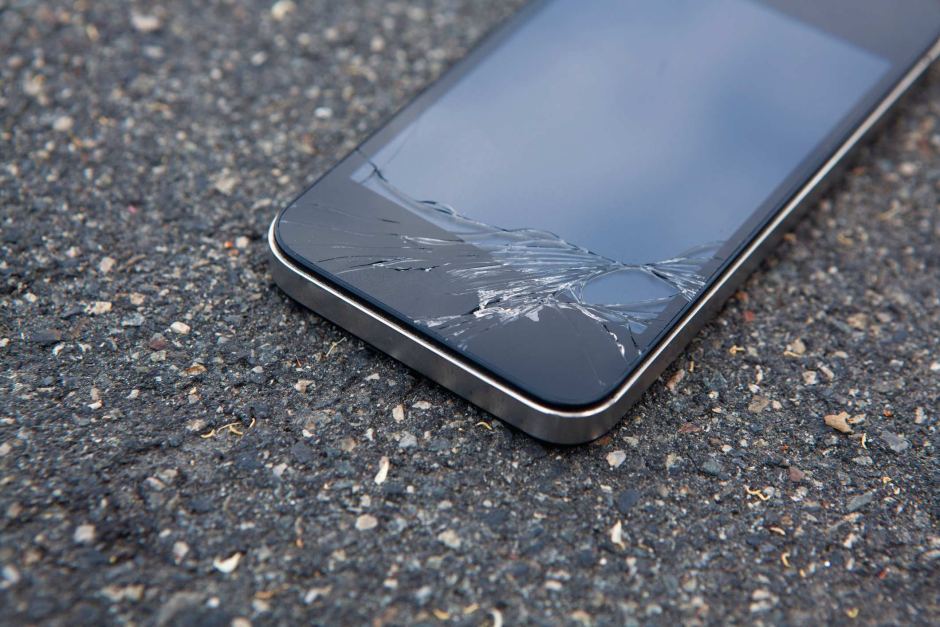Category: Electronics / Industry / Business, Economics and Finance / Consumer Electronics
Should we have a right to repair our iPhones?
Wednesday, 30 Nov 2016 12:23:48

iFixit CEO Kyle Wiens singles out Apple for particular criticism when it comes to built-in obsolescence. (Getty Images: Patrick Strattner)
Electronics might be cheaper than ever before, but they're also harder to fix.
Manufacturers often restrict repair information to so-called "authorised repair centres", leaving owners with little option to pay top-dollar or buy a replacement.
But now a community of like-minded activists is fighting back, trying to ensure that consumers have a "right to repair". We're the ones who own the goods, after all.
"If you can't fix it, you don't really own it," Kyle Wiens, the co-founder and CEO of wiki-based repair community iFixit, told RN Breakfast.
"We're frustrated that all these things that we supposedly own, we don't actually control.
"Manufacturers say: 'Well, if you have any problems, you have to just go and buy another one.'
"Well, I like the thing that I have."
Proprietary parts and tools
According to Mr Wiens, consumers have been disadvantaged by manufacturers' use of proprietary parts, which make them unfixable with normal tools.
"On the bottom of the iPhone, there are two proprietary screws that Apple won't sell you the screwdrivers for," said Mr Wiens by way of example.
"They don't want you to know how to get inside.
"It really comes down to them wanting to sell us a new gizmo every year or two.
"We saw this with the iPods: every year Apple would come with a new iPod, and they were just different colours. But if you put a new battery in an original iPod that's 10 years old it would still work."
The problem of e-waste
According to right to repair advocates, our throw-away culture not only limits consumers' rights, but harms the environment.
"Electronics in particular are not very recyclable, so even if you take your electronics to recycler that can process electronics, they're only able to get a few of the elements back," said Mr Wiens.
"There's a lot of precious elements, there's a lot of environmental costs in manufacturing modern electronics. If we know we can't recycle it, then we should give as much use out of these things as we possibly can before their end of life."
The industry, however, is not sympathetic. As companies continue their efforts to make products unrepairable, the right to repair movement tries to find new loopholes and ways to mend electronics.
"They've been trying to glue things together," said Mr Wiens. "On some tablets, we're seeing the batteries glued in. Then we worked and we developed techniques to unglue the batteries so that you can swap them up.
"I don't think Apple likes me very much."
Many in the movement getting government on side as their best hope. In Sweden, for example, manufacturers are given tax breaks for providing repairs in order to reduce waste.
"I think that makes a lot of sense," said Mr Wiens.
"If you think about what we want ... we want to encourage more labour, we want to create more jobs, and we want to disincentivise this as much as possible on the manufacturing side so that we can make these things last longer."
- About Us
- |
- Terms of Use
- |
-
 RSS
RSS - |
- Privacy Policy
- |
- Contact Us
- |
- Shanghai Call Center: 962288
- |
- Tip-off hotline: 52920043
- 沪ICP证:沪ICP备05050403号-1
- |
- 互联网新闻信息服务许可证:31120180004
- |
- 网络视听许可证:0909346
- |
- 广播电视节目制作许可证:沪字第354号
- |
- 增值电信业务经营许可证:沪B2-20120012
Copyright © 1999- Shanghai Daily. All rights reserved.Preferably viewed with Internet Explorer 8 or newer browsers.




 Send to Kindle
Send to Kindle